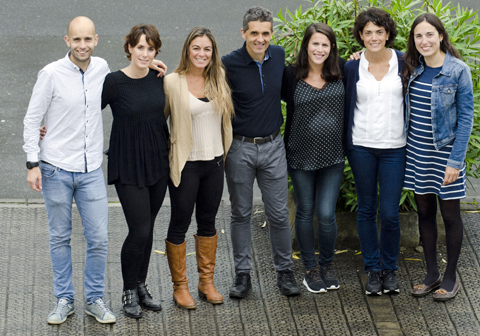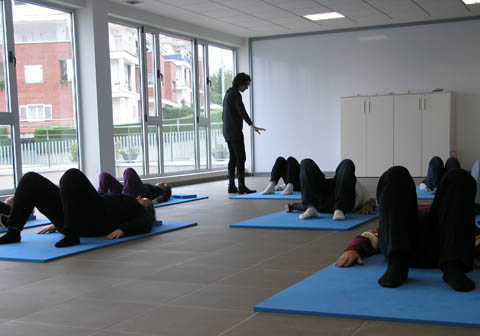Learning to be aware of movement improves body balance and mobility in people with intellectual disability, according to a study conducted in the UPV/EHU's Department of Physiology and led by Dr Jon Irazusta. The research group, in collaboration with the Department of Social Action of the Chartered Provincial Council of Bizkaia, has studied the evolution experienced over a six-month period by 32 people (21 men and 11 women) at the company Lantegi Batuak. The research has been published in the internationally prestigious scientific journal: Research in Developmental Disabilities.
-

UPV/EHUk irabazi du XI. Euskarazko Eztabaida Txapelketa
-

Metalurgia/Metala Borrokan
-

Liztor asiarraren aurkako jakien kontserbazioa optimizatu dute
-

Teknikarien eta kudeaketako eta administrazio eta zerbitzuetako langileen 2024ko LEP onartu du UPV/EHUk
-

Ingurumen-zuzenbidearen inguruan lehen Jasangarritasun Gela aurkeztu dute
Re-education of movement prevents problems associated with ageing in people with intellectual disability
Researchers at the UPV/EHU-University of the Basque Country have confirmed the effectiveness of the Feldenkrais method to improve people's balance and mobility
- Research
First publication date: 13/10/2017

Intellectual disability is defined as a significantly reduced capacity to understand new or complex information and to learn and apply new skills. What is more, people with this reduced ability display signs of early ageing (such as a decrease in mobility and balance), which may increase the disability, loss of life quality and risk of social exclusion.
The study, conducted between September 2015 and May 2016, used the Feldenkrais model, a system based on the conscious attention to movement and developed by the engineer and doctor in physics of Ukrainian origin Moshé Feldenkrais. The 32 people between the ages of 40 and 60 with intellectual disability and who participated in the research were divided into two groups of 16 people (one intervention group and the other the control group). Over a 30-week period the first group received a weekly group session geared towards self-knowledge through movement. In other words, they were given verbal instructions to carry out a task and each participant decided how to carry it out and explored various actions to choose the one they felt was the easiest to do and which called for the least effort. The control group did not receive any classes or any other movement-based therapy.
When the study was over, the members of the intervention group completed the functional assessment tasks in less time and improved in the tests to assess mobility and balance in comparison with the control group. Specifically, the stability analysis was used by means of a stabilometric platform in addition to the following functional tests: gait speed, chair lifting and standing balance. They were all carried out immediately before the start of the 30 sessions and as soon as the last session had been completed.
This study demonstrates, for the first time, the effectiveness of the Feldenkrais method to enhance the physical state and functional capacity of middle-aged people with intellectual disability.
Bibliographic reference
- The Feldenkrais Method improves functioning and body balance in people with intellectual disability in supported employment: A randomized clinical trial
- Research in Developmental Disabilities
- DOI: 10.1016/j.ridd.2017.08.012




